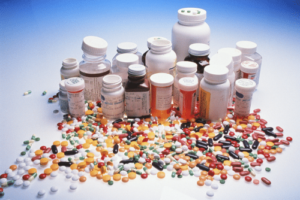 According to the U.S. Centers for Disease Control and Prevention, 78 people in the United States die from an opiate overdose every day. Annually, that’s more than 28,000 deaths. And arguably, these are preventable deaths, hence the pressure from the Obama administration on Congress to fund the President’s $1.1 billion opioid treatment program (which has not yet been approved).
According to the U.S. Centers for Disease Control and Prevention, 78 people in the United States die from an opiate overdose every day. Annually, that’s more than 28,000 deaths. And arguably, these are preventable deaths, hence the pressure from the Obama administration on Congress to fund the President’s $1.1 billion opioid treatment program (which has not yet been approved).
Conference call convenes three departments focused on single pressing issue
Earlier this month, three administration officials held a conference call addressing this issue. Attorney General Loretta Lynch, Agriculture Secretary Tom Vilsack, and head of the Office of National Drug Control Policy Michael Botticelli announced new measures in the fight against the opioid epidemic plaguing the nation, including increased federal examination of physicians’ narcotic prescribing patterns and grants to fund tele-medical access for addiction treatment in rural areas where density of resources is lower.
For one, Michael Botticelli urged Congress to support the President’s drug treatment measure. He referred to Congress approving Ohio Senator Rob Portman’s Comprehensive Addiction & Recovery Act (CARA) but not yet authorizing the funds to pay for it as “reprehensible.”
Portman spokesperson Emily Benavides offered a softer perspective on the approved but not yet funded status by affirming that there is indeed support from the White House for CARA and that it is not unusual for federal legislation to first meet authorization and later earn funding via an appropriation.
“We welcome the White House engagement in securing more funds,” she said. “Sen. Portman supports efforts to get more money to fight the opioid epidemic.”
Attorney General pledges pragmatic support; Ag Secretary pledges telemedicine funds
Loretta Lynch said an “all hands on deck memo” to federal law enforcement from her office is forthcoming on options for preventing, treating, and enforcing drug abuse across the country. She added the sentiment that opioids are “taking a heartbreaking toll on America” and that they represent “one of the most urgent law enforcement challenges.”
Lynch went on to say that the federal government will heighten efforts to “dismantle drug distribution networks that are the scourge of our country.”
Tom Vilsack said that his department will send $4.7 million to mental health centers in rural areas in 16 states to assist with establishing and implementing telemedicine resources for patients. He spoke to the reality of remote or rural locations as having fewer opportunities for drug treatment than more populated regions.
Bereaved father criticizes the unfunded, unrealized CARA legislation
Don Flattery is a Virginia man whose son died of a drug overdose two years ago. He referenced a “massive treatment gap” in this country: only one out of ten people actually receive the drug treatment they require. He said that unless the necessary funds are released for it, the CARA legislation will remain “a hollow shell.”
According to 2014 figures released by the U.S. Drug Enforcement Administration, an estimated 435,000 Americans use heroin (one type of opioid) on a regular basis. That statistic is sobering in and of itself, but it’s hard to overlook the epidemic nature of the problem when one considers that that figure is almost three times the number of 2007’s findings.
For more information/questions regarding any legal matters, please email [email protected] or call 310.203.2800.